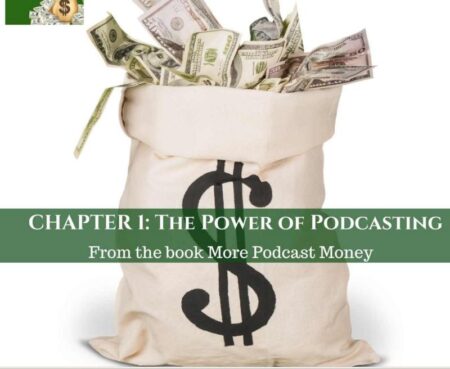Podcast: Play in new window | Download

In this episode of The Podcast Reporter, we deliver some thoughts from an old benefit of starting a podcast. Initially, you were told by such pundits in podcasting like Dave Jackson of the School of Podcasting that podcasts can help you grow your sphere of influence (as well as grow your audience).
Well, after some thought, I have a case study that proves to new and aspiring podcasters, that podcasting can help your sphere of influence to GROW YOU.
Case study is a podcast show that has been around since 2014 — The 2030 Podcast. And, as a short story, this podcast had absolutely NO promotion or marketing or sales calls-to-action. In fact, there was not even a SUBSCRIBE button on the web page of its latest episode, or on the web pages of its prior episodes.
This podcast show grew when its episodes were picked up anonymously by a current podcast show, Grumpy Old Bens, by one of the co-hosts (Sir Ryan Bemrose) and included on a 24-hour online stream (noagendastream.com). It was played as a published episode in which the producing managers found value in what was said and knew that the current audience of noagendastream.com would find it as having great VALUE to the current stream audience.
Now, I myself, as a subscriber to the Grumpy Old Bens show, had heard during various hours of this 24-hour stream my episodes being played and broadcast on the stream. What a wonderful surprise it was to me — and I quickly informed my co-host, Matt Cox of the podcast show called Brunch with the Brits, of that activity. He was surprised and glad of that activity.
But again, there was NO marketing, no promotion, no sales, no bumpers, etc. of any sort to try and increase our audience, and thus to GROW OUR INFLUENCE.
The results: well, since that time, over several months, our download numbers have grown — sometimes to 3,000 downloads per week per episode or more. And all this due to like-minded listeners receiving the stream and hearing our podcast show episodes. And they, then have downloaded the episodes and listened to them.
So, as Dave Jackson said in a recent podcast episode of his School of Podcasting show: “podcasting can help grow your sphere of influence…”
And now, we have seen that, in our experience, podcasting can help your sphere of influence grow the PODCASTER and the SHOW.
As you will hear in this audio episode, we have included a recent small clip from a show, Grumpy Old Bens, that describes the VALUE of our 2030podcast.com show, in which the co-hosts actually promote the show to their fan base of listeners (that is, to their own sphere of influence).
So, as you can see, there is no absolute rule that your podcast must have a plan to drive listeners and increase your audience numbers by growing your sphere of influence. There is always a situation that defies conventional wisdom by having your sphere of influence grow YOU.
We hope that this episode could give you another proven method for you, as an aspiring or new podcaster, to improve the results of your podcast show and episodes. And we wish for you the best in podcasting.
Thank you for your attention.
Copyright (c) 2021, Matrix Solutions Corporation and Grumpy Old Bens. All rights reserved.


